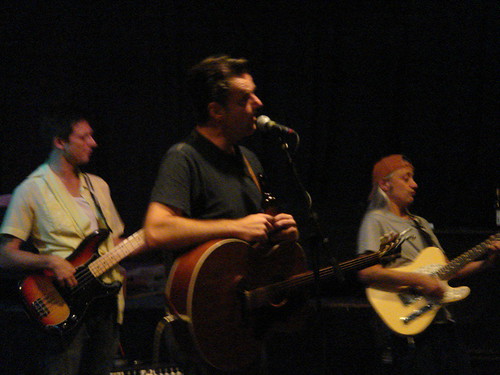Sir Lindsay Hoyle vowed to restore calm but now faces Brexit-like chaos
Hoyle #Hoyle

After his election as the Commons speaker on a promise of restoring calm after the rancorous final years of John Bercow, Sir Lindsay Hoyle finds himself facing the sort of bitter criticism once directed at his predecessor.
On Wednesday, amid shouts of “resign”, Hoyle issued an apology to MPs after the Commons chamber descended into chaos over his handling of a tense Gaza vote, which had prompted a walkout by SNP and Tory MPs.
“I thought I was doing the right thing and the best thing, and I regret it, and I apologise for how it’s ended up,” he said.
UK parliament descends into chaos over Gaza ceasefire vote – video report
Such was the anger at his selection of both government and Labour amendments to the Scottish National party’s Gaza ceasefire motion – a decision that defused the scale of rebellion facing Keir Starmer – the Conservatives are not ruling out running a candidate against him in his Chorley constituency at the next general election. Speakers are not traditionally challenged by the main parties at elections.
“I do take responsibility for my actions, and that’s why I want to meet with the key players who have been involved,” said the speaker.
Hoyle said he wanted to meet with party leaders and chief whips to “discuss what is the best way forward”. To heckling, he also denied he had earlier met Sue Gray, Starmer’s chief of staff, amid Tory claims that he had wilted under Labour pressure.
Although he was expected to avoid a government-backed heave against him in parliament, there was an explicit rebuke of him from the dispatch box by the leader of the Commons, Penny Mordaunt.
Announcing that the government would withdraw from the votes on Gaza, Mordaunt said Hoyle had “raised temperatures” on an issue where feelings were already running high and had “put MPs in a more difficult position”.
While Hoyle had justified his decision on the basis that it would give MPs the “widest possible range of options” on the “highly sensitive subject”, it departed from a convention where one opposition party cannot amend another’s motion.
MPs jeer as speaker chooses Labour amendment on Gaza ceasefire motion – video
In a letter to Hoyle, the clerk of the House of Commons, Tom Goldsmith, said he felt “compelled to point out that long-established conventions” were not being followed in this case.
In scenes reminiscent of Bercow’s time in the speaker’s chair after the Brexit referendum, MPs repeatedly interrupted Hoyle.
He faced widespread heckling as he suggested the rules around opposition-led debates reflect an “outdated approach” that restricted the “operations” that could be put to the Commons. The former Tory minister Sir Desmond Swayne shouted “bring back Bercow!” while others shouted “shame”.
On a highly charged day, during which tensions rose inside and outside parliament, sources close to Hoyle said the personal safety and pressure that MPs and families had been under had weighed heavily on his belief that colleagues should be able to weigh up all options.
There was also a public call for calm by the Tory MP Sir Charles Walker. While there was “upset and concern” at the speaker’s decision, Walker said, he did not foresee the grievance turning into a sustained move to remove Hoyle.
Asked about the level of anger in government, a minister told the Guardian that Wragg’s motion offered a way of venting anger but described it as “a parliamentary issue, not a government one”.
“Colleagues are just embarrassed for [Hoyle] now after the immediate shock. It was he who had said in his manifesto that he would support the smaller parties yet just bulldozed them in favour of Keir’s need not to have frontbench resignations,” the minister added.
Either way, Hoyle, an avuncular pet lover who was first elected as a Labour MP for Chorley in 1997, finds himself in the parliamentary crosshairs of others after a political career in which he was well regarded on both sides of the house.
Coming after Bercow, who was found to have bullied his staff in a parliamentary investigation and was widely criticised as being partisan, Hoyle vowed to transform a “toxic parliament”.
The son of a Labour MP, Hoyle ran a textile and screen-printing firm before entering parliament. A ministerial appointment never came, but he was a diligent committee member not without the political skills that paved the way for his elevation.
“I’ve come into this job as a referee,” Hoyle said when appointed speaker, before adding: “It shouldn’t be about me, it’s about the chamber.”